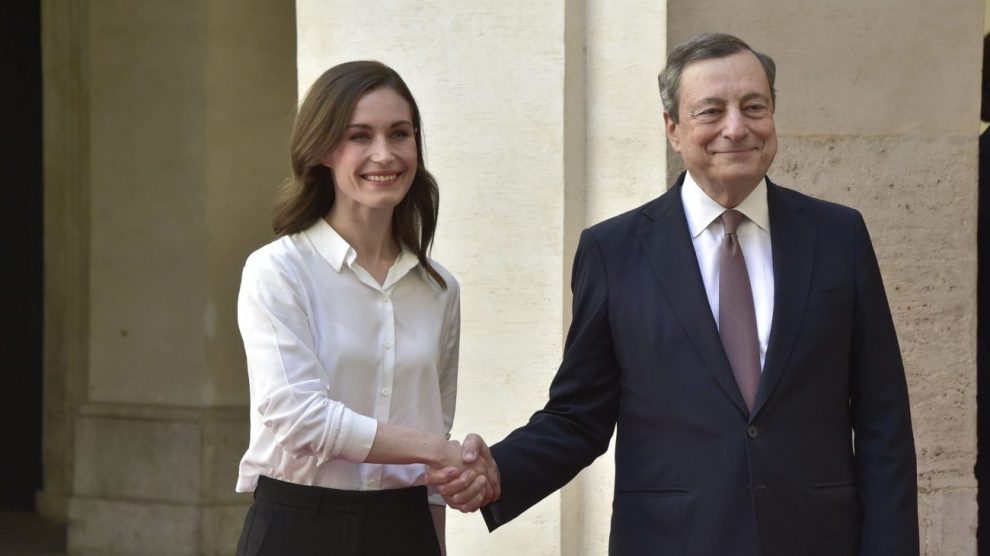Benvenuta, PM Marin. On Wednesday, Finnish Prime Minister Sanna Marin touched down in Rome to meet her Italian counterpart, Mario Draghi. The two discussed Russia, Ukraine and NATO, bilateral relations and the European Union.
And welcome to NATO (’s accession path). It’s a “historic moment for Europe and for Finland,” noted the host, who stated that Helsinki’s bid for NATO membership “is a clear response to the Russian invasion of Ukraine and the threat it poses to peace in Europe, to our collective security.”
- “Italy strongly supports Finland’s decision, as well as Sweden’s,” added PM Draghi, vowing Italy would support both in the transitional period, too.
- “We want to guarantee our security and that of the EU,” remarked PM Marin.
Endorsements matter. As diplomatic sources in Helsinki explained, Ms Marin’s goal was to obtain a full public endorsement regarding NATO membership from Mr Draghi, one of Europe’s most influential leaders.
- Italy is also among the European countries closest to Recep Tayyip Erdogan’s Turkey, a pillar of NATO in the eastern Mediterranean and the sole opponent of Swedish and Finnish membership.
- Ankara’s obstructionism might be a negotiating tactic – aimed, perhaps, at the F-16 fighter jet consignment the US Congress is holding off – but it is enough to worry the two Nordic countries. Perhaps Mr Draghi could exert some leverage.
Security and the grey zone. Sweden and Finland aim to finish the paperwork by the end of June so as to celebrate their symbolic accession at the NATO Summit in Madrid, where the next Strategic Concept will see the light. Until then, the two countries are treading in what they call the “grey zone”: the transition period that leaves them exposed to Russian threats – which lately have been reiterated by Vladimir Putin and his advisers – before Article 5 is triggered.
- Helsinki does not believe Russia will physically attack, but it deems a hybrid attack – such as cyber aggression – more likely. Against such an attack, not even the collective security agreement Finland just signed with Boris Johnson’s United Kingdom can help.
- Hence the urgency to elicit European solidarity from Rome: EU treaties also have a joint defence clause in case of attack, requiring all other member states to lend aid “by all means in their possession.”
The expert’s take: Decode39 reached out to Stefano Stefanini, Italy’s former ambassador to NATO. He believes the Turkish veto to Stockholm and Helsinki would amount to “a slap in the face of Washington and NATO” and produce a “definitive break in Ankara’s foreign and security policy.”
- Furthermore, as it happened with Mr Putin’s invasion, it would also set in motion exponential variables that Turkey would not be able to control, said Mr Stefanini.




